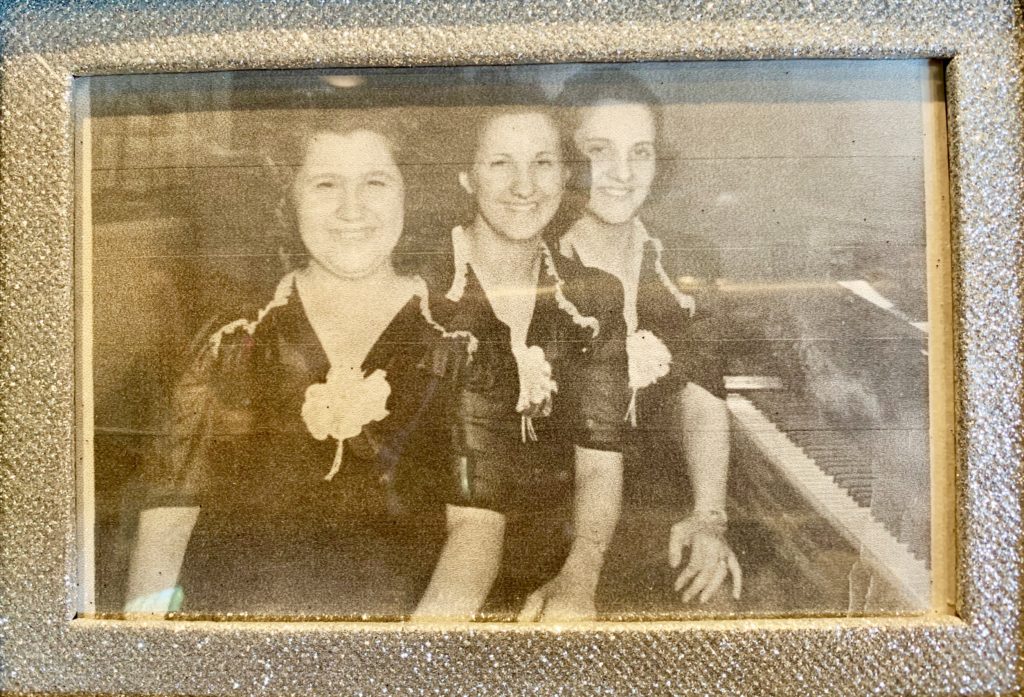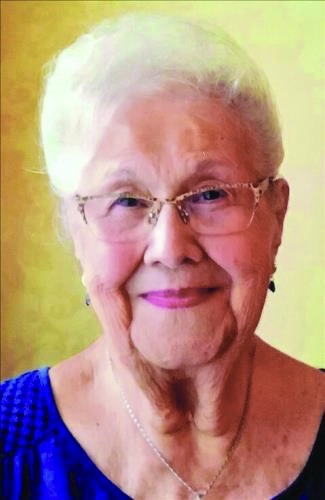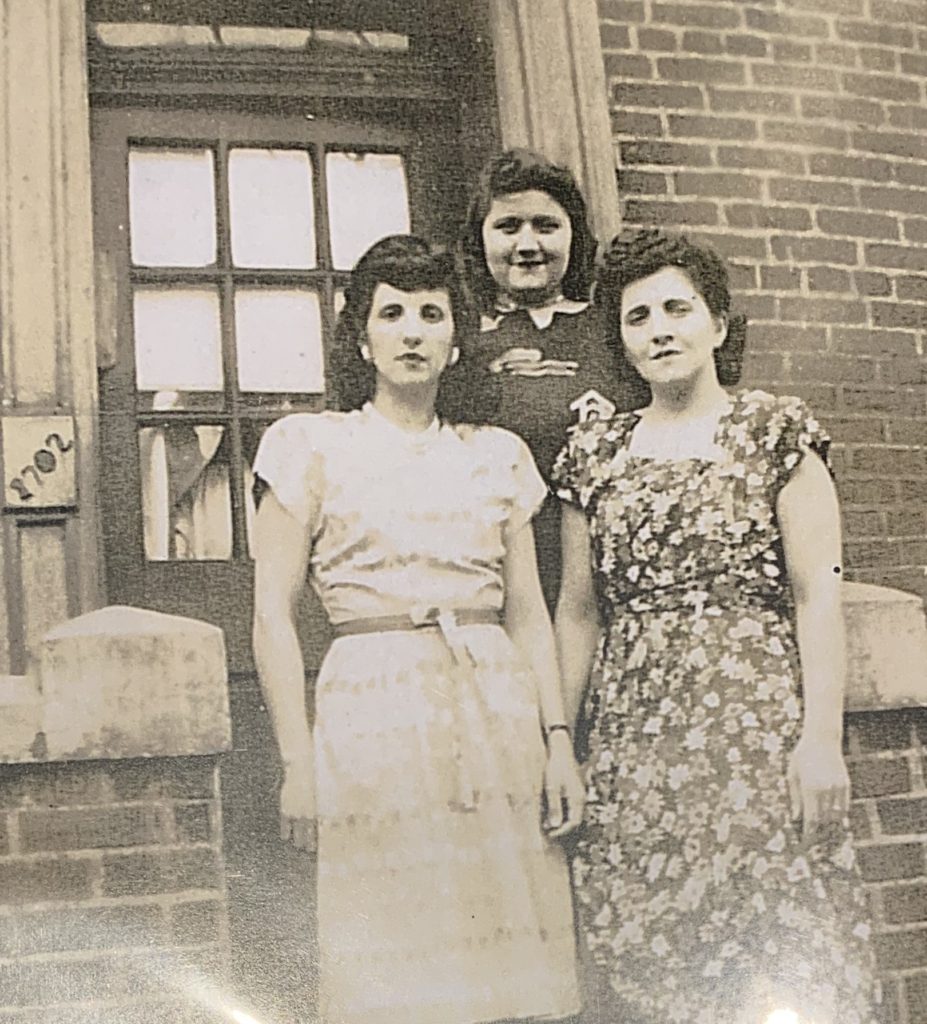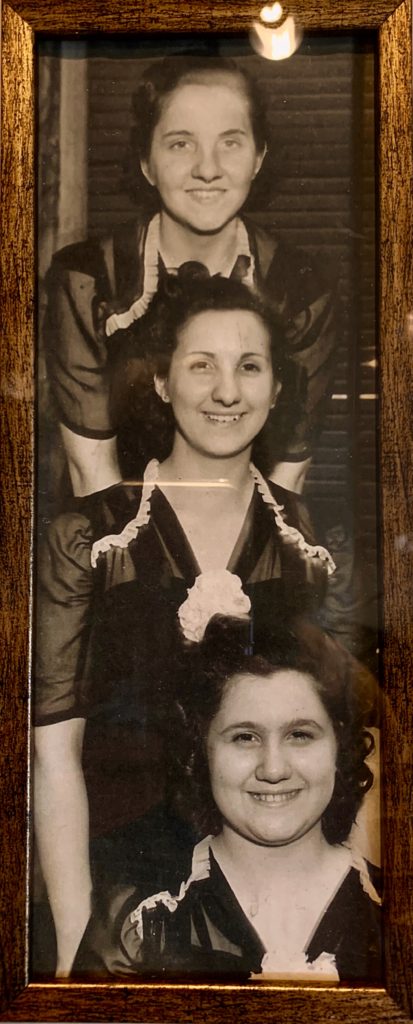We visited Gloria in late September 2019 in her apartment in a senior living complex in Pittsburgh with a view of the Allegheny River. At the time, I had a strong sense that I was seeing her for the very last time. Without Covid, that probably wouldn’t have been true, but as it happened, I was right, and I think maybe she knew it too. We talked about the Democratic primary and how she liked Pete Buttigieg, we ordered Chinese food, which took a long time to arrive, and mostly we listened to an old recording made at her parents’ sixtieth anniversary that reunited her with her siblings, singing and playing all the old standards from the 30s and 40s. Beautiful music.
Before she was eleven years old, Gloria started singing with her sisters, Tess and Mary, six and eight years older than she. Gloria sang the lead, rewriting the music so it suited her alto voice, while her sisters sang harmony above and below her, their voices melting together in a way you only hear when families sing together. You can see Gloria in front here with her two sisters behind, Tess then Mary. It wasn’t long before they won the $200 first prize in Wilkins’ Amateur Hour on Pittsburgh’s WJAS radio station, under the name “The Dattilo Sisters Harmony Trio”.

But not long after that, the group broke up for a time, when Mary ran away with a man, “much older” than her — a “criminal.” Two years later she was back, with a small son, and the music continued.
It was not an easy life. Gloria’s parents emigrated from Calabria, her father Vincenzo first, rechristened James at Ellis Island, and then her mother, Carolina, the only woman in steerage with two small children. She refused to ever cross that ocean again. Carolina gave birth to ten children, seven of whom survived to adulthood. Gloria was the last, the baby, and in many ways, it seems she got the best of her mother, as last children in large families sometimes do. They lived in the Hill District of Pittsburgh, not far from where August Wilson was growing up at the same time. They owned a little shop, and Gloria would take the incline down the hill with her mother to the Strip District to buy live chickens and vegetables to sell. Carolina crocheted an afghan from yarn found floating down the river during the Pittsburgh Flood of 1936, that still lies on a bed upstairs at our house. Carolina had little use for the Church.
It’s a life I find hard to imagine, but it was one whose contours were shared by millions of immigrants across the United States. One thing that lasts from that life is the food. My husband, who was married before her death to Angela, Gloria’s beloved only child, describes the meal they ate at Thanksgiving the first time he went down to be with her family. It began with antipasti of every kind on a kind of etagere, then progressed through Italian wedding soup before he was served ravioli so wonderful he had to have a second helping. And then. And then. They brought out a full American thanksgiving: turkey, mashed potatoes, vegetables, gravy, pies…
The girls, now renamed The Three Ds, did sing again, on “Buddy Murphy’s Guest Book,” on radio station KQV, and rebroadcast up and down the eastern seaboard. There was talk of more, of trying to make it in New York City after the war, but Carolina put her foot down. Tess got married, and that was the end.
Carolina was not allowed to get an education, but she made sure Gloria graduated high school at age fifteen, and then from the University of Pittsburgh with a degree in Psychology and Sociology. Later, Gloria added an MA in Social Work. For twenty-five years, she directed a residential centre for troubled youths in Waynesburg PA. The first time I met her, at a party, she spoke of how experience with those children shaped her generous views of those who fall through the cracks and need compassion and support. Gloria was an Italian-American, a Catholic, a liberal, and a Democrat.
As we sat and talked with her that last afternoon, listening to her sing in the recording of her family, my eye was drawn to the legend written on a plaque on the wall. It was a quotation from Erma Bombeck and it read, “When I stand before God at the end of my life I would hope that I would have not a single bit of talent left and could say, ‘I used everything you gave me.'” In wonderment I realized that yes, yes she had. She offered up everything of herself she had ever been given. She gave all of herself. And I have no doubt that what she gave will be received.
So now sit back, relax, shut your eyes and please listen once more to the harmony of The Three Ds, led by Gloria Gugliotta:
Don’t touch that dial; we’ll be right back.



